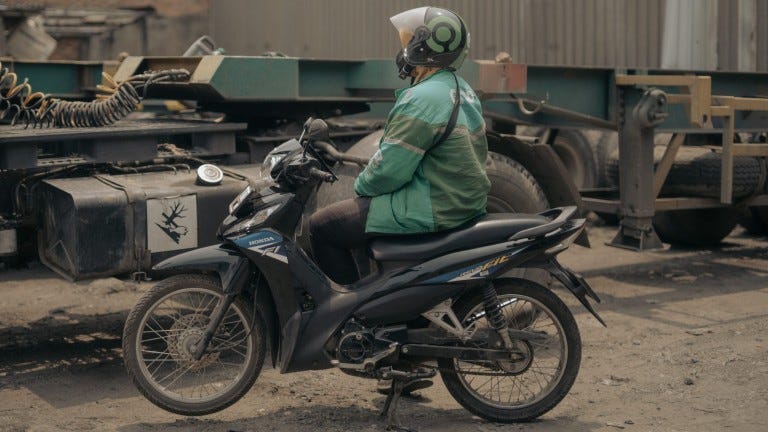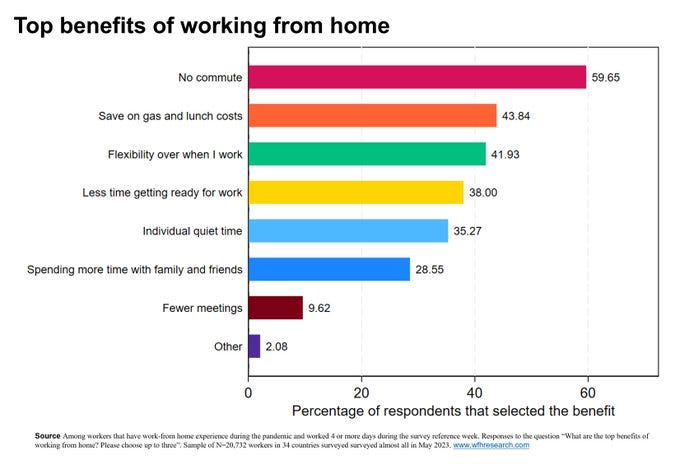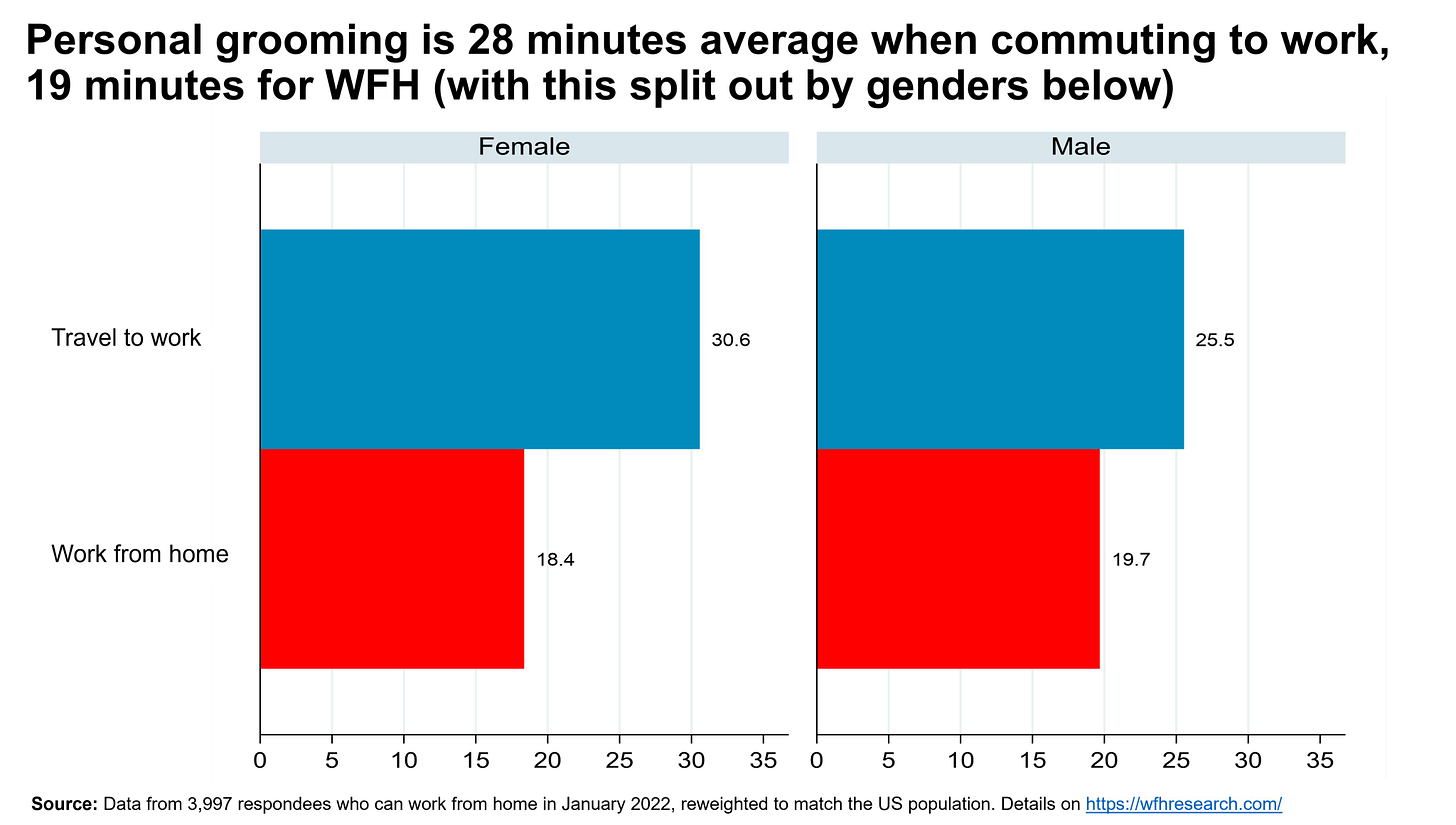Work Realities: Home Sweet Home Vs Life on the Road
#WF47 Surveying 21,000 workers on the gains from working from home, the impact on personal grooming, and a perspective from rideshare workers in Jakarta.
There are many misconceptions about the 3.3 billion in the global workforce.
For example,
Most people do not work from home - the estimates are 69% in the UK, 55% in the US.
60% of the world’s employed population work do not have a ‘formal job’ protected by labor laws with social security benefits.
Misconceptions arise from the media we consume which is mostly aimed at people more likely to click on car adverts. (more here → Five Graphs That Challenge Misconceptions on the Future of Work). In today’s article, read about the benefits of working from home to the perils of working on the road.
The Main Perks of WfH According to 21,000 Workers
What are the top benefits of Working from Home?
From my personal experience of WfH over 20 years, I would say,
not wasting time travelling 🚂🚗
access to my extensive herbal tea 🍵 collection
'laptop shut to beach time’ 🌊 = 5 minutes
In a survey of nearly 21,000 workers in 34 countries, who had some WfH experience the top reported benefits of WfH were:-
Less commuting time - saving 1 hour a day
Save on commuting and lunch cost - saving $20/day
Flexibility on when I work - workers would take an 8% pay cut to WfH
less time getting ready for work - saving 10 minutes a day - apparently 73% shower when WfH vs 85% going into work!
Source : Working from Home Around the Globe: 2023 Report, Calculated average gains from Professor Nick Bloom
Workforce Futurist Poll - What is the biggest benefit of Working from Home?
Working From Road - Female Rideshare Drivers in Jakarta Speak Up

they’re harassed, demeaned, and still carry full responsibility for the household when they get home.
Most workers do not have the benefits of working from the comfort of their homes.
For example, those working on the road include drivers for ride-hailing and delivery platforms.
In Indonesia, companies like Grab and Gojek recruited women drivers as part of their growth strategy. It is estimated that 5% of ride-hailing drivers are women.
Driving for ride-hailing companies was once pitched as a perfect opportunity for women to win independence by earning their own incomes. However there have been problems.
“I felt safer when the male passenger wanted to drive. It prevented me from sexual harassment. If I sat in the back, they could not touch me,” said Iin, a ride-hailing driver.
This article from Rest of World, highlights perspectives from speaking to women who work as rideshare drivers in Jakarta.
WFH Satire - “Companies trying to get people back in the office”
The comedian Alexis Gay made me chuckle with this one.
Do you miss “magic hallway conversations”, “organic interaction” and reminders that “sometimes when you have a job, you actually have to do a job”?
Test Your Management Skills and Join The HR and Hashtags Fantasy Football ⚽ League
How do you rate your Team Management Skills?
The English Premier League starts again on 11th of August, and The HR and Hashtags Fantasy Football League is now in its 8th season.
You can compete against some of the greatest armchair managers in HR and Technology. Past winners 🏆 have included David ‘assisted by Watson’ Green, Damon ‘Kloppette’ Klotz, Rob ‘Bobby’ Robson, and James ‘Wise Owl’ Pike.
Reply to this email (for subscribers) and I will give you the code to join the league for free before the start of the Premier League Season.
Watch out for the next Workforce Futurist article which will have some insights on how real football managers use technology and data to manage their team performance. Make sure you subscribe to get this direct to your inbox.








I live in Auckland, New Zealand where the average commute time is at least an hour each way, petrol is $3.03 a liter and public transport hugely unreliable. Many companies have downsized their space, and the last job I had where there was an office, we all went in to a serviced office one day a week, which was great. The irony was, while it was great for the team, we got very little work done. Previously in a government department where I held a senior position with my own corner in a large open plan office, I estimate that easily an average of 30% of time was wasted in deskside chats, meetings that took a long time to get to business, and very little personal accountability. Some people had to work in the office by the nature of their jobs, but most would get much more done when they worked from home, which some of us had reasonable discretion to do.